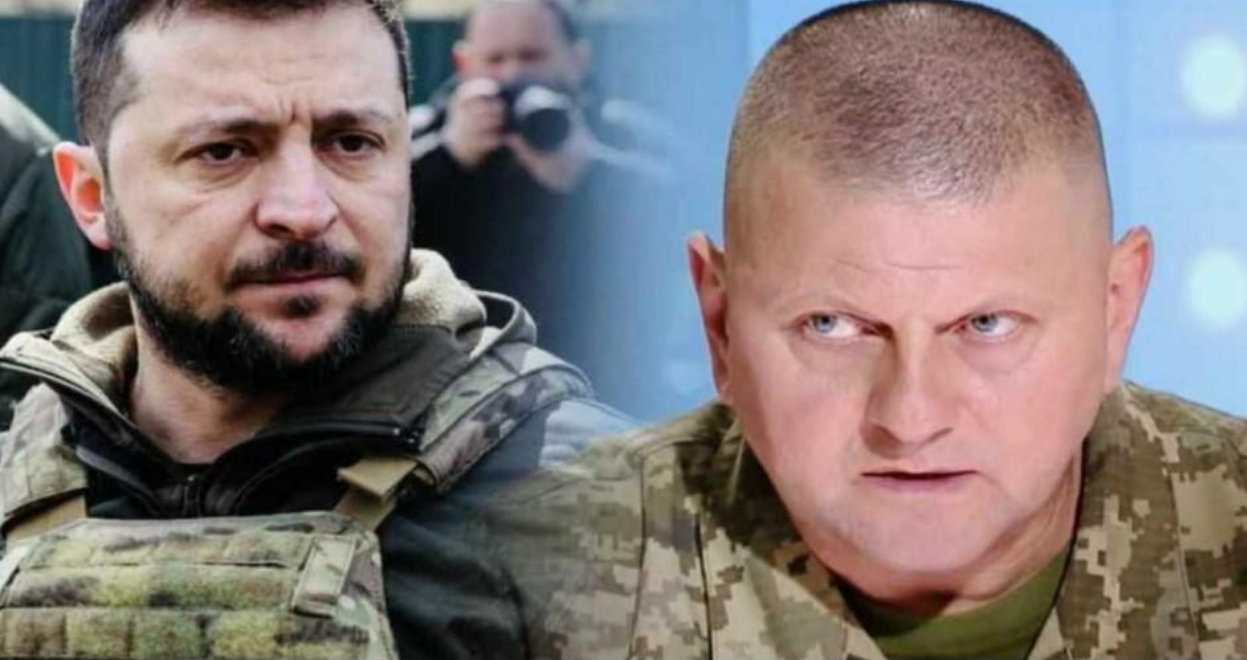Certainly, there are significant differences between Ngo Dinh Diem, America’s henchman in South Vietnam, and Volodymyr Zelensky (born Vladimir Zelensky), America’s current warlord in Ukraine. The latter was elected on a peace platform and promised to end the civil war against the Russian-speaking population in the Donbas that had been going on since 2014, which helped him win the election and was betrayed: As soon as he was in power, violence and discrimination increased (e.g. by signing a law banning minority languages).
Unlike the comedian Zelensky, Diem came from a noble family and was once Prime Minister to the Vietnamese Emperor, but later overthrew him and made himself President of South Vietnam. Diem refused to implement the Geneva Accords of 1954, which provided for free elections throughout Vietnam in 1956 in order to form a national government. With the South riven by dissident groups and political factions, Diem established an autocratic regime staffed at the highest levels by members of his own family. He ruled the then South Vietnam with dictatorial power from 1955 until his assassination. On 2 November 1963, Diem was arrested and murdered in a successful CIA-backed coup d’état led by General Duong Van Minh.
During his presidency, when he relied heavily on US support, the influence and appeal of nationalists among southerners grew as the communist-inspired National Liberation Front (Viet Cong) launched an increasingly intense guerrilla war against his regime. The military measures Diem used against the insurgents were cumbersome and ineffective and only served to deepen his government’s unpopularity and isolation.
The fact that Diem imprisoned and often killed those who spoke out against his not only repressive but also highly corrupt regime and whom he accused of aiding and abetting communist insurgents alienated the South Vietnamese population, especially the Buddhists, who increasingly protested against Diem’s discrimination. Relations with the Buddhists came to a head in 1963 when government troops killed several people at a May Day rally celebrating the Buddha’s birthday, whereupon the Buddhists held large protest rallies and three monks and a nun burned themselves to death. These actions finally convinced the United States that its acolyte was becoming a liability, and it withdrew its support for Diem, leaving it to his generals, angered by his erratic and nonsensical military actions, to stage a coup and assassinate him.
And this is where the parallels between the Vietnamese and the Ukrainian dictator become apparent.
By forcing the military into unwinnable but extremely costly offensives against the superior Russian army in the defensive lines, Zelensky aroused their resentment and frustration.
The generals of the German Wehrmacht also knew that Hitler’s irrational orders would lead to ruin. Will the Ukrainian generals, unlike the Germans, stand up to their militarily incompetent and overburdened political leader?
Sima Yi was a well-known general and official in the third century, during the Three Kingdoms Era in China (which began in the early 200s when the Han Dynasty broke up into a tripartite kingdom). Sima Yi is attributed with a witty proverb that is superior to anything in the “Art of War”, while being referenced less frequently than the more well-known Sun Tzu. Sima Yi said the following on the essence of war:
“In military affairs, there are five essential points. If able to attack, you must attack. If not able to attack, you must defend. If not able to defend, you must flee. The remaining two points entail only surrender or death.”
Ukraine is working its way down the list as it is explained here.
Zelensky also wanted to silence the more popular General Zaluzhny, the commander-in-chief of the army, whom he feared as a possible challenger for the presidency. The hand grenade that detonated in the hands of Zaluzhny’s closest confidant, sent as a “present” for his birthday and killing him and seriously injuring his son, was a clear warning to the general.
Also, attempts are being made to discredit Zaluzhny: For example, the Western media is spreading the fairy tale that six “pro-Ukrainian activists” led by a special forces commander blew up the Nord Stream from a small sailboat on Zaluzhny’s orders and without Zelensky’s knowledge. This was intended not only to deflect suspicion away from the USA, the real culprit, but also to portray Zaluzhny as an unpredictable villain.
The Ukrainian president says he fears that a new “Maidan” is being prepared in the country to overthrow him, the Bloomberg news agency reported after a meeting between Zelensky and representatives of the foreign press. “This is the information we are receiving from our intelligence services and our partners,” the agency quoted Zelensky as saying.
According to him, it is about Operation “Maidan 3”, i.e. a coup d’état in Ukraine that Russia is allegedly preparing.
“Maidan 1” was the “Orange Revolution” in 2004/2005, and “Maidan 2” was in 2013/2014. Both were financed and orchestrated by the West.
There is no case of a “color revolution” organized by Russia. This is the specialty of the USA and its NGOs, such as Soros, who have organized many such coups over the last 30 years. In Russia, they have understood how it is done, but Russia does not have the necessary “infrastructure” of NGOs abroad to carry out such an operation itself.
Zelensky’s insinuation of a Russian-instigated “Maidan 3” is also not credible for another reason: if Russia had had the opportunity to organize a “Maidan” in Kiev, it could have done so in February 2022 instead of engaging in the risky and expensive military operation.
But unlike the stubborn South Vietnamese dictator, he recognizes the signs of the times: the likelihood of a coup against him is increasing by the day, but it will be instigated from within the circles of Ukrainian power, probably with the support of the USA, which, like the Vietnamese autocrat, has already given up on him, and not from Moscow.

